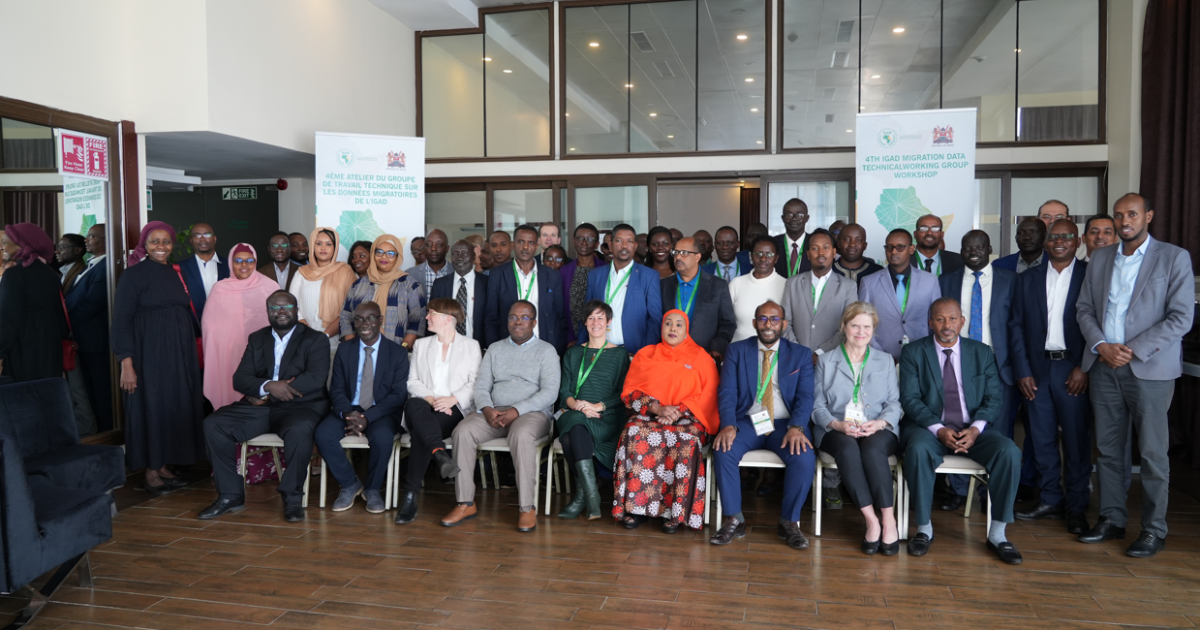Member States in the Intergovernmental Authority on Development (IGAD) region are required to have accurate and comprehensive migration and displacement data for effective response, whenever challenges and opportunities are presented by migration.
Head of Statistics, Planning Coordination and Partnership Division at IGAD, Charles Ogolla said the availability of accurate, reliable and timely data will enable the region to better understand migration and displacement patterns, to analyze social and economic implications and devise evidence-based strategies to ensure the well-being and interaction of migrants.
“It is through availability of accurate data that we can be able to develop evidence based policies and national development plans to achieve the prospects of the IGAD region,” he said.
Ogolla stated that by May 2023, the region hosted over 4.59 million registered refugees and asylum seekers, with an estimated 12.15 million internally displaced persons.
The Head of Statistics said immigration is an ever evolving global phenomenon that touches the lives of millions of people around the world, including the IGAD region, emphasizing that at an accurate and timely data will enable policy makers, researchers and practitioners respond effectively.
Ogolla was speaking during the Harmonization and Improvement of Production and Utilization of Migration Data in the 4th IGAD Migration Data Technical Working Group Workshop held at a Nairobi hotel.
The three-day workshop that brought together experts and stakeholders in the field of migration and displacement to discuss, analyze and improve the quality and reliability of migration and displacement statistics was attended by members of IGAD, African Union and United Nations.
“This 4th working group meeting provides us with an opportunity to share knowledge, exchange best practices and address the challenges associated with migration and displacement statistics in the region,” he added.
IGAD addresses migration and displacement agenda through the Regional Migration Policy Framework (RMPF), which offers a comprehensive policy approach to govern migration and displacement challenges within the region.
At the same time, Ogolla urged the technical working group to ensure that the production of migration and displacement statistics is optimized, as well as ensure enhancement in coordination of migrations and displacement statistics at both continental, regional and national.
Speaking at the event, the African Union Institute for Statistics Statafric Statistician, Samson Bel-Aube said it is important to set up an information system on migration in Africa and for the African Statistics system to have high quality, reliable and updated migration statistics at the national, regional and continental level for development of targeted policies, better planning and better decision making
He said the African Union Commission through the implementation of the African Charter on Statistics and the Strategy for Harmonization of Statistics (SHaSA) Member states of the African Union have been supported through a number of initiatives on the development and harmonization of migration of statistics in Africa.
In her remarks, the Regional Data Hub Coordinator Laura Nistri, from the UN International Organization for Migration said unsettled conflicts, unprecedented drought conditions and socioeconomic challenges continue to fuel high levels of internal displacements and cross border movement, which she attributed to vulnerabilities and inequalities in the region.
She however, noted that despite the unsettled conflicts, migration has contributed positively in the areas of transfer of skills, knowledge and remittances and the creation of diverse and vibrant communities in the East and Horn of Africa region.
“Facilitation of free movement of goods, services and people has the potential to catalyze socio-economic opportunities, move households out of poverty and increase the shared prosperity of countries and their citizens,” stated Nistri.
Some of the achievements the committee has done include the establishment of the IGAD Statistic Committee, operationalization of thematic working groups on migrations and displacement statistics, production and dissemination of the IGAD migration statistics report and enhancement of the South to South Cooperation (SCC) amongst member states.
By Bernadette Khaduli



